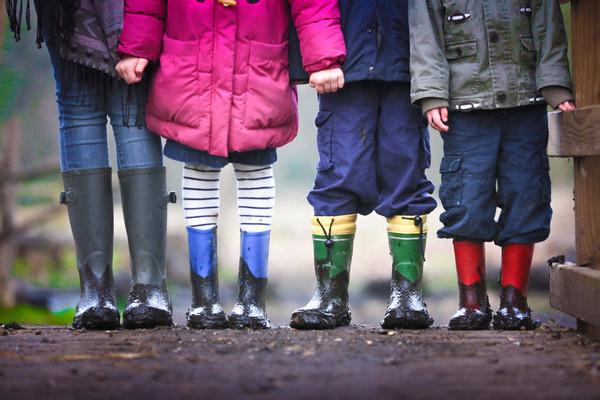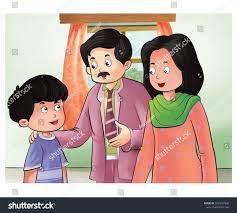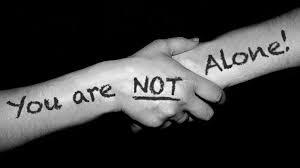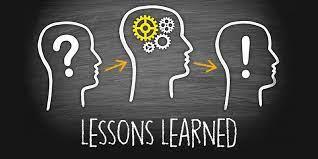10 Things Emotionally Neglected Kids Grow Up Believing — That Are Simply Not True
Curated from: yahoo.com
Ideas, facts & insights covering these topics:
12 ideas
·3.95K reads
30
1
Explore the World's Best Ideas
Join today and uncover 100+ curated journeys from 50+ topics. Unlock access to our mobile app with extensive features.
1. It’s not good to be too happy or too sad.
As a child, you naturally had intense feelings, as this is how all children are wired. Exuberant one moment, intensely frustrated the next, you needed someone to teach you how to understand and manage your emotions. But what you got instead was a covert message that your emotions were excessive. What you learned was to dampen your feelings, not the skills you needed to manage them.
40
621 reads
2. You are overly sensitive.
As a child, you naturally felt upset when things upset you. You naturally felt angry when you were hurt. What you needed was to have your upset feelings soothed by a loving parent so that you could learn how to soothe yourself. But what you got was a message that your feelings were a weakness. What you learned was to judge yourself for having them.
40
417 reads
3. Your needs and preferences are irrelevant.
As a child, you had needs, just as all children do. You had things that felt important to you, and things that felt good or bad to you. What you needed was for someone to notice, or to ask what you needed or wanted, so that you would feel that you mattered. When no one asked you enough, you learned instead that you don’t.
37
365 reads
4. Talking about a problem will unnecessarily burden other people.
Growing up, you had problems with school, siblings, and friends. What you needed was to know that you could talk to a parent, but instead, you knew that they, for whatever reason, could not handle it. What you learned was that others couldn’t handle your problems, so you’d best keep it to yourself.
39
376 reads
5. Crying is a weakness.
All humans cry, and for a reason. Crying is a way to release and process your emotions. As a child, you cried sometimes (maybe often). What you needed was for this to be okay. Instead, your family didn’t know that crying has a purpose, so they ignored your tears or shamed you for having them. Perhaps they never showed tears themselves. You learned that crying is negative and should be avoided.
36
284 reads
6. Others will judge you for showing your feelings.
Were you judged for showing feelings in your childhood home? This powerful message has been carried forth with you. “Hide your emotions from others” is the message, “or others will think less of you.” Or worse, they will use your feelings against you.
39
300 reads
7. Anger is a negative emotion and should be avoided.
As a child, of course, you often felt angry, as this feeling is a natural part of life. As a child, what you needed was a help to name, understand and manage your anger. Perhaps instead your anger was squelched or overwhelmed by another’s. Maybe you were punished for showing it. What you learned was that anger is bad and that you should suppress it.
38
252 reads
8. Relying on another is setting yourself up for disappointment.
Children need help, period. So do adolescents and adults. As a child, you needed support, direction, suggestions, and assistance. But you could see that your parents were not up to that. What you learned was that it is best not to ask for help in general because you are setting yourself up for a letdown.
33
247 reads
9. Others are not interested in what you have to say.
As a young child, you had endless wonder at the world around you. As you grew, you had endless things that you wanted and needed to ask and say. Yet talking was not valued in your family and you were not asked or listened to enough. What you learned is that your questions and words are not valuable and that you should keep them to yourself.
37
225 reads
10. You are alone in the world.
As a child, you needed to feel that an adult had your back; that no matter what happened, there was support and help for you. Instead, when you needed something you discovered that your adult(s) were busy, overwhelmed, or not aware. What you learned was that you were all alone.
34
257 reads
Summary
These lessons all seem so real and so true when you grew up receiving them in such a subliminal, global way. But do not forget that they are merely lessons of your family, not truths. The fact that you learned them does not make them right.
32
300 reads
Hope
Your past, no matter how bad it was, does not define your future. The choices and actions you make today will ultimately define who you will eventually become. Make the decision to learn from your past and apply it in the present so that you can live the life that you were meant to live. You deserve it!
38
308 reads
IDEAS CURATED BY
CURATOR'S NOTE
Learning and growing to become the best person you can be.
“
Tom Joad's ideas are part of this journey:
Learn more about mentalhealth with this collection
Seeking support from others
Identifying the symptoms of burnout
Learning to say no
Related collections
Similar ideas
4 ideas
How to Learn a Valuable Lifetime Skill: Self-Soothing
psychologytoday.com
5 ideas
Did You Have to Grow Up Too Soon?
psychologytoday.com
20 ideas
LIFE LESSONS - 10 IDEAS THAT WILL HELP YOU UNDERSTAND THE MECHANICS OF LIFE
thequintessentialmind.com
Read & Learn
20x Faster
without
deepstash
with
deepstash
with
deepstash
Personalized microlearning
—
100+ Learning Journeys
—
Access to 200,000+ ideas
—
Access to the mobile app
—
Unlimited idea saving
—
—
Unlimited history
—
—
Unlimited listening to ideas
—
—
Downloading & offline access
—
—
Supercharge your mind with one idea per day
Enter your email and spend 1 minute every day to learn something new.
I agree to receive email updates










